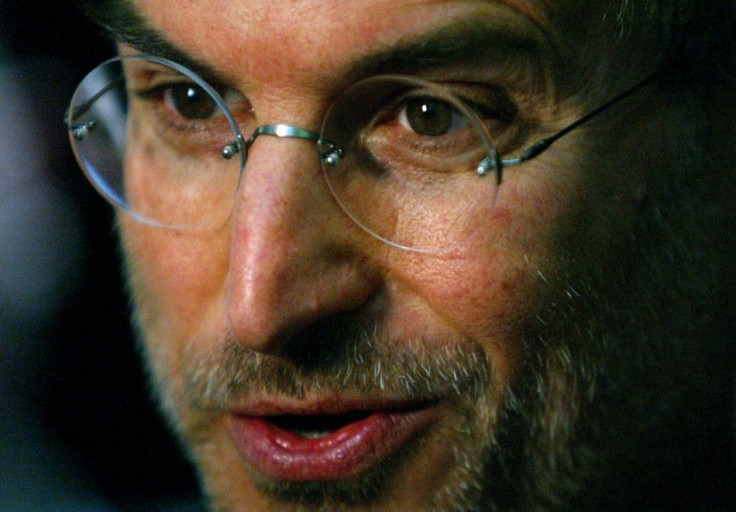Steve Jobs' Upcoming Biography to Reveal His Candid Confessions, Desires: Releasing Oct. 24

It doesn't matter whether you're a millionaire or a pauper: At the end of your life, you will probably want get that much closer to family and friends and wish for them to accomplish everything possible over the course of their lives.
In the last few days of his own life, Steve Jobs had just one desire -- that his family and children understand why he wasn't always there for them all his life. Jobs, who succumbed to his long-standing battle with a rare form of pancreatic cancer, passed away peacefully, surrounded by his family, on Wednesday.
In a statement issued following his death, Jobs' family noted, In his public life, Steve was known as a visionary, but in his private life, he cherished his family. True to those words, Jobs wanted to cherish everything that they as a family had missed during the course of his 56 years of life.
Jobs' authorized biography, written by Walter Isaacson, will be released Oct. 24. It will tell the story of Jobs' desires and struggles, as well in-depth details of the life of one of the world's most iconic leaders and thinkers.
Jobs, generally a very private person, was reportedly very candid about some facts surrounding his life and his goals, according to Isaacson, who visited him for what was to be the last time a few weeks before Jobs died.
The cancer wasn't easy on Jobs. Nevertheless, although Jobs was in physical pain, one of the world's sharpest minds was still alert.
[He was weak,] but his mind was still sharp and his humor vibrant, Isaacson is reported to have written, in an essay to be published in Time magazine before the release of the biography.
Jobs knew the end was near, so he wanted to devote his remaining last few moments with his family, his wife Laurene, and his four children, and wanted them to understand him and his life.
According to a report in The Wall Street Journal, Isaacson quoted Jobs as saying, I wasn't always there for them, and I wanted them to know why and to understand what I did. Jobs reportedly shared this sentiment in their final interview at his home in Palo Alto, Calif.
The father of the iMac, iPhone, iPad, iPod, and many more such products completely changed the way the world saw and used technology. He may not have created computers, mobile phones, or portable music players, but he surely did revolutionize the way the world lived with them, from the 1970s onward.
He didn't work alone, but none of this could have happened without him, said Glenn Harada, a former Apple Inc. employee. Such was Jobs' aura that he not only was the creator of Apple's signature products but also its best brand ambassador.
The biography, Steve Jobs, has already been listed in the No.1 spot at Amazon.com. The book consists of more than 40 interviews with Jobs, and dozens more with his family, friends, competitors, and colleagues. It may well become one of the most comprehensively compiled sources of information for both his fans and those who want to know a bit more about him.
Although Jobs cooperated with this book, he asked for no control over what was written nor even the right to read it before it was published. He put nothing off-limits. He encouraged the people he knew to speak honestly. And Jobs speaks candidly, sometimes brutally so, about the people he worked with and competed against. His friends, foes, and colleagues provide an unvarnished view of the passions, perfectionism, obsessions, artistry, devilry, and compulsion for control that shaped his approach to business and the innovative products that resulted, said Isaacson, who previously authored biographies of Benjamin Franklin and Albert Einstein.
The biography that reveals the most personal aspects and perspective of the private Steve Jobs is highly awaited by his fans and followers.
MUST READ: A Steve Jobs Landmark: The 1984 Apple Macintosh Launch Video
© Copyright IBTimes 2024. All rights reserved.











